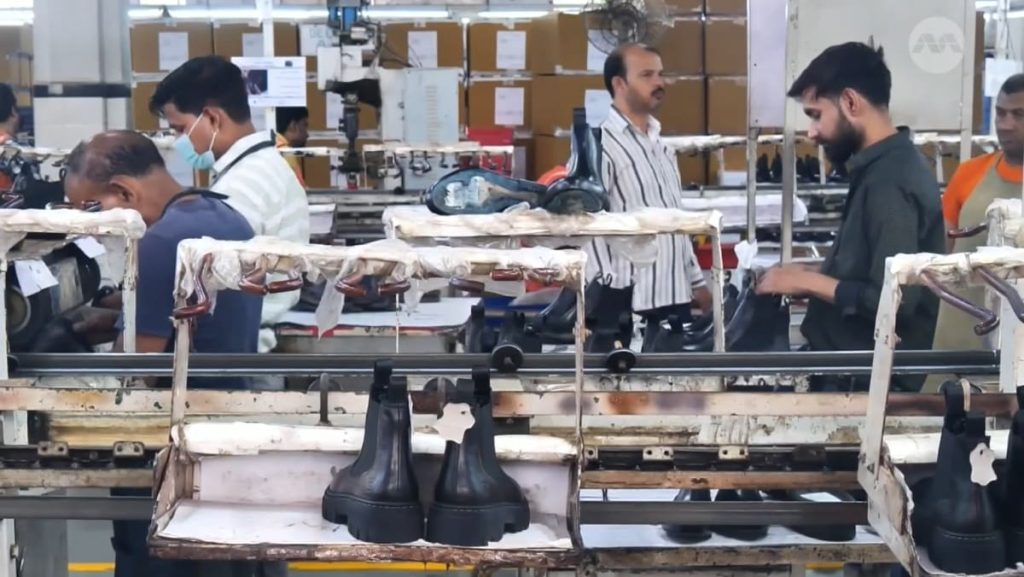The leather industry in Agra, India, is a significant source of employment, particularly for those in the labour-intensive sector. The industry accounts for around 30 per cent of all leather shoes produced in the country. The Dawar Group, one of the major players in the industry, employs more than 1,500 staff and sells its footwear domestically as well as internationally. The company has benefitted from the government’s business-friendly policies, such as simplified permit processes, lower corporate taxes, and easier insolvency procedures. However, despite these advantages, the high cost of production remains a challenge for companies in the labour-intensive sector, making it difficult for them to earn high profits.
Founder of Dawar Group, Puran Dawar, highlighted the issue of high capital costs in India compared to other countries. He mentioned that while the world is getting capital at 0 to 2 per cent, India is operating at 8 to 10 per cent, which makes it challenging for companies to achieve future growth or scale up. For individuals like Naval Kishore, who work in the sector, starting their own business on a limited budget is a significant challenge. Kishore shared his struggles in obtaining a loan to establish his venture, as authorities indicated that he needed to showcase employment generation and run a small business to be eligible.
Small businesses in Agra’s leather market also expressed feeling disconnected from government schemes like “Make in India,” as they have not reaped the benefits. Despite the challenges faced by the labour-intensive sector and small business owners, economists believe that the government’s policies will gradually improve the situation for individuals like Naval Kishore and small-scale entrepreneurs. Dr. Rajat Kathuria, dean of the Shiv Nadar University’s School of Humanities and Social Sciences, emphasized the slow but eventual trickle-down effect of market policies in rural areas, which could potentially support individuals and businesses in Agra’s leather industry in the long run.
The slow trickle-down effect of market policies could be crucial in promoting economic growth and job creation in Agra’s leather industry, benefiting both established companies like Dawar Group and aspiring entrepreneurs like Naval Kishore. By addressing challenges such as high production costs and limited access to government schemes, the industry could see improved prospects for growth and profitability. While the road ahead may be challenging for small businesses in the sector, there is optimism that with time, the benefits of government policies will reach those at the grassroots level, supporting them in achieving their entrepreneurial aspirations and contributing to the overall development of the industry.


